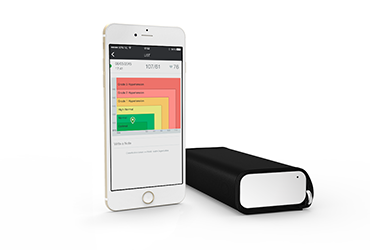We get Dr. Garratt’s top advice about how to strengthen your heart and maintain medical care in the midst of the COVID-19 pandemic. Dr Garratt, MD, MSc, serves as Medical Director of the Center for Heart and Vascular Health and as the Chair of Cardiology within the Christiana Care Health System.
Why is it particularly important now to look after your heart health?
Now more than ever it’s important for Americans to pay attention to their heart health. While heart disease is a leading cause of death in the United States, many Americans have fallen out of care because of COVID-19 fears. Chronic, ongoing diseases require chronic care, yet according to a recent survey conducted by the Society for Cardiovascular Angiography and Interventions (SCAI) as part of the Seconds Still Count campaign, nearly 40 percent of Americans still do not feel safe going to the doctor’s office while COVID-19 is a risk. With proper management, we can keep people safe even when they have serious heart problems like coronary artery blockages or heart valve troubles. Without routine care, heart problems will worsen and can lead to sudden, life-threatening events.
What can people at home do to help strengthen their heart?
I tell my patients not to let worries about COVID-19 interfere with their ongoing preventative care measures. This includes keeping their regular appointments and not delaying care in the event of a serious health issue. From home, they can do this by:
1. Taking advantage of telemedicine, where available, to keep in touch with their care providers and stay up-to-date on medications and treatments recommended by their doctor.
2. Familiarizing themselves with the signs of a more serious issue. Anyone who experiences any of the following symptoms should seek medical attention immediately as these could be signs of heart attack or stroke. Learn more at SecondsCount.org.
– Uncomfortable pressure, squeezing, fullness or pain in the center of your chest
– Pain or discomfort in one or both arms, the back, neck, jaw or stomach
– Shortness of breath with chest discomfort
– Face drooping
– Difficulty with speech or movement of an arm or leg
3. Making healthy lifestyle choices. Get outside if you can and get in a little exercise. Even light exercise is almost magic for heart health. Try to get at least 150 minutes each week. That shouldn’t be too much for most people – it’s a 30-minute brisk walk most days. If your doctor has cleared you to do more vigorous exercise, try to get your heart rate up to around 80% of your maximum heart rate (roughly a pulse count that equals 220 minus your age) for 20 minutes at a time. Avoid high fat, high carbohydrate foods, and, of course, avoid tobacco.
What technology tools do you recommend for helping to strengthen heart health at home?
Telemedicine has become a highly valued asset during this pandemic. Virtual care allows heart patients to stay connected with their care team from the safety of their homes. People with cardiovascular disease and other chronic conditions can communicate with their providers easily and safely, which helps assure a care plan doesn’t falter. We have lots of tools now that can help your care team learn about you from afar: we have blood pressure cuffs and scales that can transmit information wirelessly, and more advanced tools that can help doctors know when heart failure is spinning out of control or your heart rhythm has become irregular. We’re at the beginning of a home-based care revolution.
What are the potential negative implications if people do not look after their heart, in particular during the pandemic?
Heart disease and other chronic conditions are not waiting in quarantine. Delaying care, or postponing procedures, can be a bigger threat to American health than the virus itself. Research confirms that during the COVID-19 pandemic there has been a nearly 40 percent drop in patients being treated for a life threatening cardiac event known as a STEMI. Many patients are suffering at home, despite the fact that time is the greatest indicator of survival for medical emergencies like a heart attack. We’ve heard so much about the tragic deaths from COVID-19 infections – more than 400,000 Americans so far – but studies also show big increases in deaths from heart attacks and problems related to unmanaged high blood pressure1. Delays in getting care are believed to have contributed to these excess deaths. It’s more important than ever for individuals to know the signs of a major medical emergency so they can seek medical attention immediately. While many people are more afraid of contracting COVID-19 than having a heart attack or stroke, staying in routine care could be the difference between a manageable heart condition and a medical emergency.
Sources
1 Wadhera RK, Shen C, Gondi S, Chen S, Kazi DS, Yeh RW. Cardiovascular deaths during the pandemic in the COVID-19 United States. JACC 2021;77:159-69.




